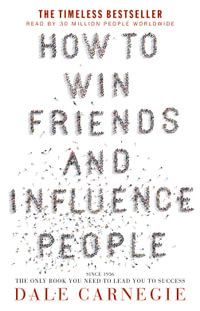"An incredibly powerful, well-written, and important book for addressing the feelings of inadequacy, defectiveness, shame, unlovability, and hopelessness that often come with depression. Using techniques from acceptance and commitment therapy (ACT), this workbook offers valuable strategies for addressing childhood wounds, rewriting your story, and moving toward individual values and goals. It gives readers a critical opportunity to change the way they see themselves--and to subsequently change their lives."
--Rachel Zoffness, PhD, assistant clinical professor at the University of California, San Francisco; chair of the American Association of Pain Psychology; and author of The Pain Management Workbook and The Chronic Pain and Illness Workbook for Teens
--Rachel Zoffness, PhD
"At last, a book that brings light to what most clinicians intuitively understand: the relationship between shame and depression. The authors clarify the origins and maintenance of depression by identifying and deconstructing defective schemas. Complex concepts are conveyed clearly and illustrated through case studies. Exercises and worksheets prompt the client to identify triggers and to reframe thoughts. Psychotherapists and laypersons will find this book an essential tool in treating depression."
--Cynthia Boyd, PhD, forensic neuropsychologist in independent practice in La Jolla, CA
--Cynthia Boyd, PhD
"For anyone struggling with depression, McKay, Greenberg, and Fanning have combined in one amazing book the key to understanding your illness and the method of unlocking its grip on your life. The authors have created a step-by-step process to rewrite negative self-beliefs, change feelings of defectiveness, live a meaningful life, and develop self-compassion. Surely anyone who follows their guidance will experience a significant life improvement."
--
Jeffrey C. Wood, PsyD, psychologist, and coauthor of
The Dialectical Behavior Therapy Skills Workbook and
The New Happiness--Jeffrey C. Wood, PsyD
"Some of our greatest lessons result from experiencing shame if we are able to learn from the emotion. McKay, Greenberg, and Fanning illuminate the foundation of shame in defectiveness schemas; and the negative, automatic thoughts and coping mechanisms that accompany this behavioral pattern. They help readers recognize the thoughts associated with the experience of shame in defectiveness schemas, including hypersensitivity to criticism, blame, comparison, and rejection. Through facilitating the clarification of values and employing mindfulness practices, they guide readers to an awareness of the emotion and its accompanied sensations, thoughts, and urges--skillfully demonstrating an approach that leads to accepting feelings, having self-compassion, and responding in new ways."
--Mary Lamia, PhD, clinical psychologist, professor, and coauthor of
The Upside of Shame--Mary Lamia, PhD
"Thoughts related to shame and 'being defective' affect a multitude of people; for many sufferers the tendency is to shut down, hide, isolate, disconnect from others, and stop living life. Who wants that? In this workbook, the authors introduce readers to skills derived from ACT to unpack these behaviors, stop being trapped by those narratives, and start living a fulfilling life. This is a workbook that is written in plain language, with lot of examples and specific skills to put into action. I highly recommend it!"
--
Patricia E. Zurita Ona, PsyD, author of
The ACT Workbook for Teens with OCD and
Living Beyond OCD Using Acceptance and Commitment Therapy, director of the East Bay Behavior Therapy Center, and fellow of the Association for Contextual Behavioral Science--Patricia E. Zurita Ona, PsyD
"When someone has the belief that they are defective in some way, it can lead to a fear of getting close to others, often resulting in loneliness, depression, and shame. If you feel this way, you are not alone. This workbook will help you identify what is standing in the way of believing you are worthy of the love and acceptance that you deserve."
--
Michelle Skeen, PsyD, author of
Love Me, Don't Leave Me; and coauthor of
Just As You Are--Michelle Skeen, PsyD
























